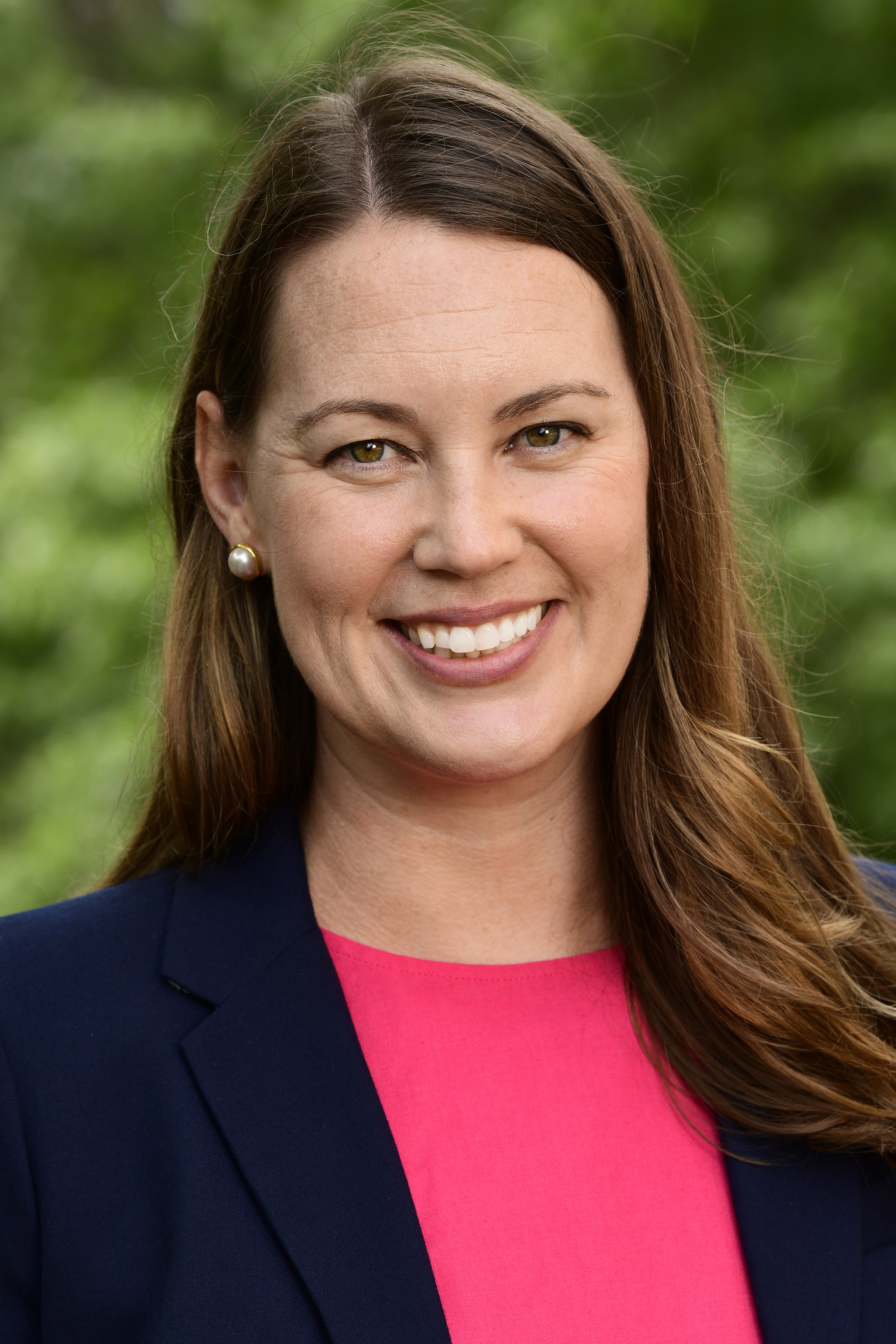Executive Council
MEET YOUR NAC EXECUTIVE COUNCIL MEMBERS
The executive council is comprised of 7 members. At least one member must represent Canada. North American Chapter members can be elected every-other-year to the Executive Council via electronic elections.
Alexandra (Lexie) White, Co-Chair (2024-2026)
Alexandra White, PhD, leads the Environment and Cancer Epidemiology group at the National Institute of Environmental Health Sciences (NIEHS). The overarching research goal for the group is to identify novel and modifiable environmental exposures that are related to women’s cancer risk and to explore underlying biologic mechanisms. With the long-term goal of reducing the incidence of cancer in women, she aims to identify environmental carcinogens for which exposure can be mitigated either with policy changes or individual-level interventions. Dr. White is a Co-Investigator on the prospective Sister Study cohort, which is focused on environment and genetic risk factors for cancer in women.
Shoshannah (Shannah) Eggers, Co-Chair (2025-2027)
Shoshannah Eggers, PhD, is an Assistant Professor of Epidemiology at the University of Iowa College of Public Health. Dr. Eggers applies epidemiologic methods to investigate potential microbiome-mediated mechanisms underlying environmental effects on health. Her work examines how exposures such as metals, pesticides, and dietary factors influence microbiome composition and function, and how these microbiome changes relate to health outcomes across the life course, including neurological and gut health. She is PI/MPI on NIEHS-funded studies that leverage population-based data and advanced microbiome analytics to explore these complex relationships.
Theresa (Tracy) Bastain, (2025-2027)
Theresa (Tracy) Bastain, PhD, is an environmental epidemiologist and Associate Professor in the Department of Population and Public Health Sciences at the University of Southern California (USC). Dr. Bastain co-directs the Maternal and Developmental Risks from Environmental and Social Stressors (MADRES) Center for Environmental Health Disparities—a Center of Excellence supported by NIMHD and NIEHS that is focused on understanding and mitigating the effects of environmental exposures in early life and during critical periods (e.g., pregnancy) on maternal and child health outcomes with an emphasis on health disparities populations. The MADRES pregnancy cohort of approximately 1000 predominantly Hispanic mother-child pairs from urban Los Angeles is a key population resource established part of the MADRES Center. Dr. Bastain’s primary research interests are in understanding the role of prenatal chemical and psychosocial stressors on postpartum mental health outcomes in women and neurodevelopmental outcomes in children.
Stephanie Eick, (2024-2026)
Stephanie Eick, PhD, is an Assistant Professor of Environmental Health and Epidemiology (joint) at the Rollins School of Public Health, Emory University. Her research focuses on the health effects of environmental chemical and non-chemical (i.e., psychosocial) stressors during pregnancy. She has a particular interest in chemical mixtures, as well as understanding how non-chemical stressors can amplify the harmful effects of chemicals. She is also interested biomarkers of stress response, such as oxidative stress and inflammation, and better understanding the biological mechanisms leading to adverse pregnancy and child health outcomes. Her research has been funded by the Eunice Kennedy Shriver National Institute of Child Health and Human Development (NICHD) and the National Institute of Environmental Health Sciences (NIEHS). Dr. Eick is also a member of the Scientific Advisory Committee on Chemicals, which provides independent scientific advice, information and recommendation to the United States Environmental Protection Agency (US EPA). Prior to joining Emory, Dr. Eick was a postdoctoral scholar at the University of California, San Francisco with the Program on Reproductive Health and the Environment. She is involved with multiple ongoing, prospective birth cohorts.
Jillian Ashley-Martin, (2026-2028)
Jillian Ashley-Martin, PhD is a Research Scientist in the Environmental Health Science and Research Bureau at Health Canada and Adjunct Faculty at University of Ottawa and Dalhousie University. She is the Co-Principal Investigator of the Maternal-Infant Research on Environmental Chemicals Study, a pan-Canadian pregnancy cohort that has followed families for approximately 15 years. As a reproductive and environmental epidemiologist, Dr. Ashley-Martin’s research focuses on investigating exposure to and health effects of environmental chemicals across the life course in mothers and children.
Jane Clougherty, (2026-2028)
Jane E. Clougherty, MSc ScD is a Professor of Environmental and Occupational Health (EOH) at the Drexel University Dornsife School of Public Health. She completed her doctorate and post-doctoral training at the Harvard (now T.H. Chan) School of Public Health, and served as Senior Research Scientist at New York City Department of Health and Mental Hygiene, and Assistant Professor and Director of Exposure Science at the University of Pittsburgh Graduate School of Public Health.
Her work focuses on the synergistic effects of chronic psychosocial stressors and climate-related environmental exposures on population health. She managed the New York City Community Air Survey (NYCCAS) – one of the largest studies to date on intra-urban variation in pollution – and has led many studies funded by EPA, NIH, the Health Effects Institute, and others.
Dr. Clougherty developed and directed the Dornsife PhD program in Environmental and Occupational Health, and served as Chair of the Dornsife Executive Committee of the Faculty. She has been a board member of the International Society for Exposure Science (ISES), an Editorial Board Member for several prominent journals, a member of the International Society for Environmental Epidemiology (ISEE).
Hannah Laue, (2026-2028)
Hannah Laue, PhD, is an Assistant Professor of Epidemiology at the University of Massachusetts Amherst School of Public Health and Health Sciences. Her research focuses on how the environmental and microbial factors contributing to the developmental origins of health and disease.
FORMER COUNCILORS
Jessie Buckley, 2023 - 2025 ### Aisha Dickerson, 2023 - 2025 ### Scott Weichenthal, 2023 - 2025 ### Shohreh Farzan, 2022 – 2024 ### Jaime Madrigano , 2022 – 2024 ### Kate Weinberger, 2021 – 2023 ### Carrie Breton, 2021 – 2023 ### Joan Casey, 2020 – 2022 ### Marianthi-Anna Kioumourtzoglou, 2020 – 2022 ### Joel Schwartz, 2020 – 2022 ### Patrick Kinney, 2019 – 2020 ### Francine Laden, 2019 – 2020 ### Paul Villeneuve, 2019 – 2021 ### Tracey Woodruff, 2019 – 2021







